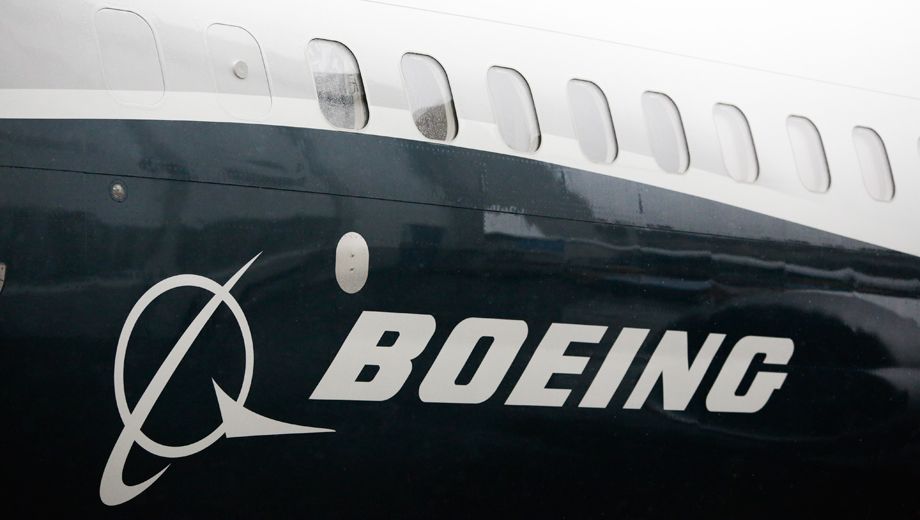Boeing, Embraer tie-up means big business for small jets

Boeing is mulling a “potential combination” with Brazil’s Embraer, the companies said, in a blockbuster deal that would expand the U.S. aerospace giant’s reach into the highly competitive market for smaller jets.
The options under discussion include a joint venture that would enable the companies to share supplier savings and cross-sell their largely complementary lineup of commercial jets, said a person familiar with the matter, who asked not to be identified because the talks are private. Such a partnership would stop short of a full takeover, which would risk becoming a lightning rod for Brazilian politicians.
The planemakers provided few details publicly beyond saying that the shape of the tie-up “remains under discussion,” and would require approval by the Brazilian government, regulators and Embraer shareholders. Brazil holds a “golden share” in Embraer that gives it veto power over an acquisition, and, according to local press reports, President Michel Temer is already signaling opposition.
“National pride is an important consideration here that could define the structure of these arrangements,” Robert Spingarn, an aerospace analyst at Credit Suisse Group AG, said in a note to clients Thursday. “Accordingly, we think JVs could be preferable in certain circumstances over outright mergers.”
An outright acquisition would be Boeing’s largest since it bought U.S. rival McDonnell Douglas in 1997, and would advance a consolidation wave sweeping through the aerospace sector. But even a partnership could give Boeing a product offering in the 100-seat category to counter a new threat from Airbus, which agreed in October to take control of Bombardier's C Series program – the target of a trade complaint brought by Boeing.
New focus on small jets
Boeing and Airbus have focused on larger, higher-margin aircraft, shifting away from planes with 100 seats or less that have similar development costs while selling for commodity-like prices.
Boeing’s potential Embraer deal raises the prospect of a duopoly with Airbus that would extend into the market for smaller planes, where manufacturers in Canada, China, Russia and Japan are emerging as competitive threats.
The market for smaller aircraft is ripe for consolidation with Bombardier, Embraer, Russia’s Sukhoi and Japan’s Mitsubishi Aircraft all fighting for sales, said John Plueger, chief executive officer of Air Lease Corp.
“That space is just not big enough, in my view, to support more than two OEMs,” he said in an interview, using an industry acronym for original equipment manufacturers. When Airbus secured its role in the space by announcing a joint venture with Bombardier in October, he said, that raised the question, “Does Boeing rethink Embraer?”
By taking over the Brazilian company, Boeing would risk clashes with regulators, labor and investors. Such a deal would expand Boeing’s manufacturing base outside the U.S. for the first time, while also marking a shift away from the company’s emphasis on handing cash back to investors through dividends and stock buybacks.
“To go and buy Embraer here would be a major change from what investors have been lead to expect, and also seemingly endorse the Airbus/C-Series strategy that Boeing was so recently unenthused about,” Robert Stallard, an analyst at Vertical Research Partners, said in a note to clients.
Government hurdle
The Brazilian government is already signaling opposition to a takeover, according to the newspaper Folha de Sao Paulo.
Temer won’t allow control of Embraer to change hands, he told Defense Minister Raul Jungmann and Air Force Commander Nivaldo Rossato on Thursday in a meeting, according to the Brazilian newspaper. The government was taken by surprise by the Journal’s report on the talks, the newspaper said.
Brazil’s ministries of defense and foreign affairs directed requests for comment to the finance ministry and the presidency. Neither immediately responded to inquiries from Bloomberg. Brazil retains a “golden share” in Embraer that guarantees government control in the event of threats to national sovereignty or security.
Created in 1969 by the Brazilian government and privatized in 1994, Embraer has been held up as a source of national pride and an example of efficiency and innovation in a commodities-driven country, though corruption scandals in the past few years have tainted that image.
The Sao Jose dos Campos-based company has enjoyed a collegial relationship with Boeing over the years. The news of Airbus’s C Series venture fanned speculation that the two might draw closer to ward off the competitive threat. Boeing is also Embraer’s commercial and maintenance partner for the KC-390, a military cargo plane still being developed.
Boeing has focused on smaller acquisitions for the past two decades to expand its portfolio of commercial, military and space products. But Dennis Muilenburg, Boeing’s chief executive officer, and chief strategist Greg Smith, signaled a willingness to consider bolder moves this year when they promoted Kent Fisher, a rising star, to head the team that handles large mergers and strategic partnerships.

Singapore Airlines - KrisFlyer
08 Aug 2012
Total posts 31
Airbus/Bombardier and now (potentially) Boeing/Embraer will place a question mark on the success of the Mitsubishi Aircraft MRJ...
02 Dec 2016
Total posts 91
Talk about reacting.....
Boeing mis-stepped with their objection to the Delta CS deal. Whilst they were focusing on hurting a much smaller competitor, they missed the opportunity that was there in front of them. A Boeing and Bombardier partnership would have been lethal and just logical. But instead Boeing played the bully tag, siting unfair subsidies. Airbus took the opportunity and Boeing is playing catch up now.
Add to that the Canadian Governments decision to stop looking at new Super Hornets as a bridge to the JSF (and buy our second F18s instead), and Delta's order for 100 A321 NEOs, and Boeing are feeling the consequences.
Hi Guest, join in the discussion on Boeing, Embraer tie-up means big business for small jets